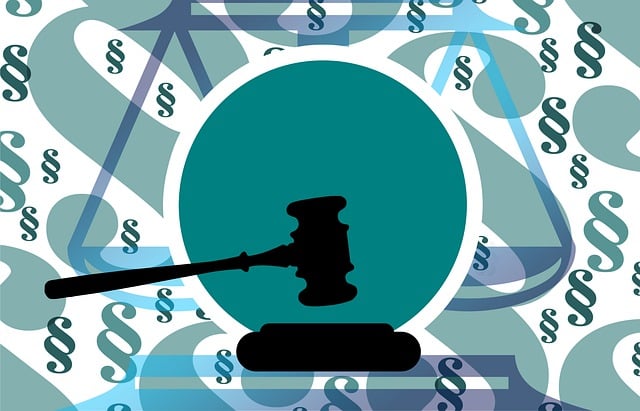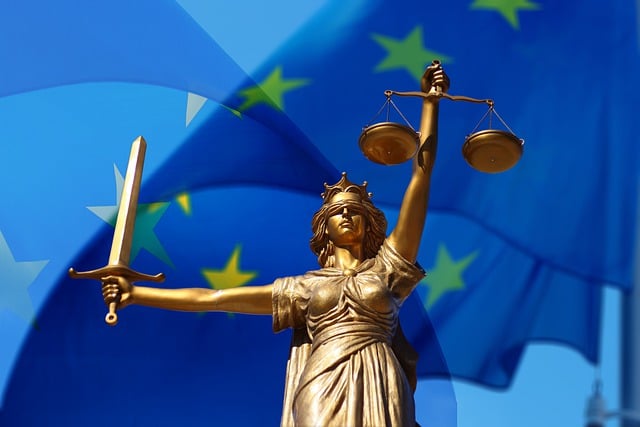Whistleblower protection laws are essential for encouraging individuals to expose illegal activities within organizations, offering them safe environments and legal standing to participate in investigations. The Sentencing Guidelines for White Collar Crime play a pivotal role in determining outcomes for both corporations and individuals accused of such offenses, influencing sentencing severity based on offense nature, impact, and criminal history. Robust legal strategies are necessary to defend against white-collar charges and navigate high-stakes cases, leveraging these guidelines to protect whistleblowers from retaliation while seeking justice through lawsuits that demonstrate engagement in protected activity and subsequent adverse reactions. Strategic approaches include connecting whistleblowers with support networks and utilizing protective orders under relevant laws, reshaping corporate and governmental accountability through substantial financial penalties and policy changes.
“Whistleblower Protection Lawsuits: Safeguarding the Courageous Revelators in the Age of White-Collar Crime
In an era dominated by complex financial and corporate structures, whistleblower protection has emerged as a critical component of justice. This article delves into the intricate world of whistleblower lawsuits, exploring key legal mechanisms designed to safeguard individuals who expose fraudulent or illegal activities. From understanding foundational laws to analyzing the role of sentencing guidelines in white-collar crime cases, we provide an in-depth analysis, offering valuable insights for both legal professionals and concerned citizens.”
- Understanding Whistleblower Protection Laws: A Brief Overview
- The Role of Sentencing Guidelines in White Collar Crime Cases
- Key Elements of a Successful Whistleblower Protection Lawsuit
- Strategies for Protecting Whistleblowers During Legal Proceedings
- Case Studies: Notable Whistleblower Protection Lawsuits and Their Impact
Understanding Whistleblower Protection Laws: A Brief Overview

Whistleblower protection laws play a pivotal role in ensuring individuals who expose illegal activities within organizations are shielded from retaliation. These laws provide a safety net for whistleblowers, enabling them to come forward with vital information without fear of personal harm or professional repercussions. Understanding these protections is crucial, especially as they often involve complex legal frameworks and sentencing guidelines for white-collar crime.
By federal and state laws, whistleblowers are entitled to legal standing in cases against employers or entities they expose. This means they can participate in all stages of the investigative and enforcement process, providing key insights to authorities. These protections extend beyond financial recompense; they also safeguard whistleblowers’ rights to continued employment or reemployment within their organizations. For his clients, this translates into a powerful tool to hold accountable those who engage in fraudulent or illegal activities while ensuring the whistleblower’s well-being and legal security.
The Role of Sentencing Guidelines in White Collar Crime Cases

In white collar crime cases, sentencing guidelines play a pivotal role in shaping the outcome for both corporate and individual clients. These guidelines, designed to ensure fairness and consistency in punishment, are based on factors like the nature of the offense, its impact, and the defendant’s criminal history or lack thereof. For prosecutors, understanding these guidelines is crucial when building their cases, as it helps them navigate potential challenges and aim for winning challenging defense verdicts.
Moreover, sentencing guidelines influence a judge’s decision during jury trials, where the evidence presented can make or break the case. The interplay between the guidelines and trial outcomes underscores the importance of meticulous legal strategies in defending against white collar charges. By leveraging the complexities of these guidelines, lawyers can craft compelling arguments, ultimately shaping the severity of sentences for their clients.
Key Elements of a Successful Whistleblower Protection Lawsuit

When bringing a whistleblower protection lawsuit, several key elements must be present to ensure success. First and foremost, the plaintiff must establish that they engaged in protected activity by reporting suspected illegal or unethical conduct within their organization. This could involve blowing the whistle on fraud, corruption, or other white-collar crimes, as outlined in the sentencing guidelines for such offenses. A clear connection between the reported activities and any adverse actions taken against the whistleblower is crucial to prove retaliation.
Additionally, the lawsuit should emphasize the impact of these adverse actions, demonstrating how they violated federal or state whistleblower protection laws. In high-stakes cases, a strong legal strategy is essential to avoid indictment and protect the rights of the whistleblower. This may involve careful navigation through complex legal frameworks and a deep understanding of both white collar defense tactics and the specific jurisdiction’s laws pertaining to whistleblower protections.
Strategies for Protecting Whistleblowers During Legal Proceedings

Protecting whistleblowers during legal proceedings is an intricate process designed to ensure their safety and encourage honest reporting of wrongdoings. One key strategy involves leveraging sentencing guidelines for white-collar crime, which often include provisions for leniency or reduced sentences for individuals who provide substantial assistance to authorities. This can be a powerful incentive for whistleblowers, knowing that their cooperation may result in more favorable outcomes.
Additionally, establishing robust protective orders under relevant laws is vital. These orders aim to safeguard whistleblowers from potential retaliation by limiting public disclosure of their identity and providing for security measures. Such measures are particularly crucial in high-stakes cases where powerful interests might seek to silence the whistleblower. Moreover, connecting whistleblowers with support networks within philanthropic and political communities can offer further protection and assistance, fostering an environment that values and protects those who expose corporate or government malfeasance.
Case Studies: Notable Whistleblower Protection Lawsuits and Their Impact

Whistleblower protection lawsuits have played a significant role in reshaping corporate and governmental accountability. Case studies offer valuable insights into the impact of such legal actions. For instance, high-profile suits against large corporations for violations of sentencing guidelines for white-collar crime have led to substantial financial penalties and changes in corporate governance practices. These cases not only ensure justice for victims but also serve as deterrents, encouraging organizations to uphold ethical standards and transparency.
Notably, lawsuits initiated by whistleblowers have influenced policy decisions within the philanthropic and political communities. By exposing unethical practices in respective businesses, these actions have prompted regulatory bodies to strengthen sentencing frameworks, making it harder for companies to avoid indictment. The impact extends beyond financial compensation; it fosters a culture of accountability, pushing organizations to prioritize compliance and social responsibility.
Whistleblower protection lawsuits play a vital role in upholding justice and deterring corporate misconduct. By understanding the intricacies of whistleblower laws, leveraging sentencing guidelines for white-collar crime, and employing strategic legal tactics, individuals who come forward with crucial information can secure their protections and even influence positive changes within organizations. These cases not only safeguard whistleblowers but also ensure that companies are held accountable for their actions, fostering a more ethical business environment.






